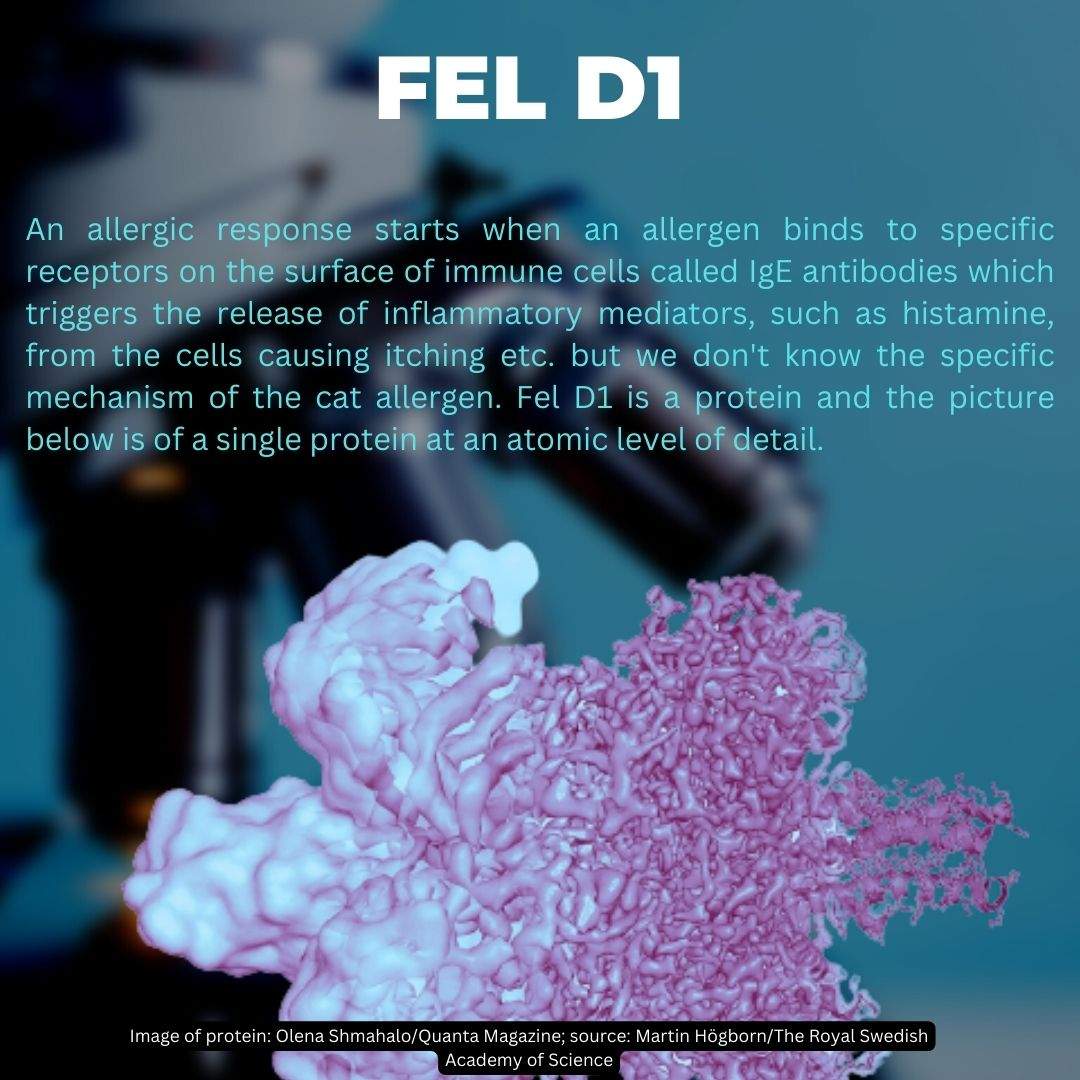I was surprised to learn that Americans spend 90% of their time indoors. I was also somewhat surprised to learn that the worldwide market for the treatment of an allergy to the domestic cat is worth US$4.2 billion! And the forecast indicates that the market will grow by 6.3% by 2031 reaching US$7.8 billion.
 |
| Image: MikeB |
RELATED: WHY does the cat allergen Fel D1 cause an allergic reaction?
That's over four thousand million US dollars spent on medications for an allergy to cats. It's a big market and one reason why it is growing is because, as mentioned, more people are spending more time indoors where they are surrounded by cat dander (dried saliva and dead skin) both floating in the air and on furniture. The cat allergen is on cat dander and cat dander has the ability to stay airborne for a long time and float around the home.
You probably know that the cat allergen is a protein called Fel D1 which is in the saliva of domestic cats. The current best preventative step to squash the feline cat allergen is Purina's LiveClear dry cat food which coats the protein and prevents it having an effect on people who are sensitive to the allergen.
RELATED: Review: Purina LiveClear Allergen Reducing Sterilised Adult Turkey cat food.
There is also a greater awareness of an allergy to the domestic cat. This has probably resulted in more people coming forward having self-diagnosed that they are allergic to cats whereas in the past they may have thought they were suffering from hay fever or have a poor immune system resulting in a series of common colds. The symptoms are not that dissimilar between an allergic reaction and a mild cold or hay fever particularly.
An allergy to a cat is in the top three causes of respiratory allergies. I was also surprised to learn that the World Health Organisation and the International Union of Immunological Societies "recognise eight cat allergens". Well, the one I've mentioned is the most common. Let's put it that way. They may not be correct when they say that by the way
There is also increasing cat ownership. More cats are being adopted and the Covid-19 pandemic resulted in a surge in cat and dog adoptions in the UK because people were lonely. The increased adoptions are going to result in the increased number of people diagnosed with an allergy to Fel D1

No comments:
Post a Comment
Your comments are always welcome.
Note: only a member of this blog may post a comment.